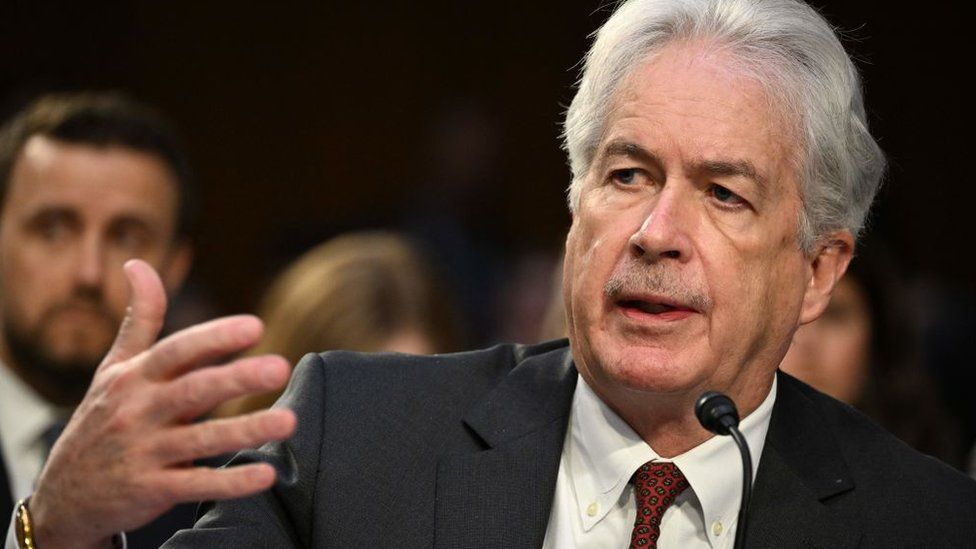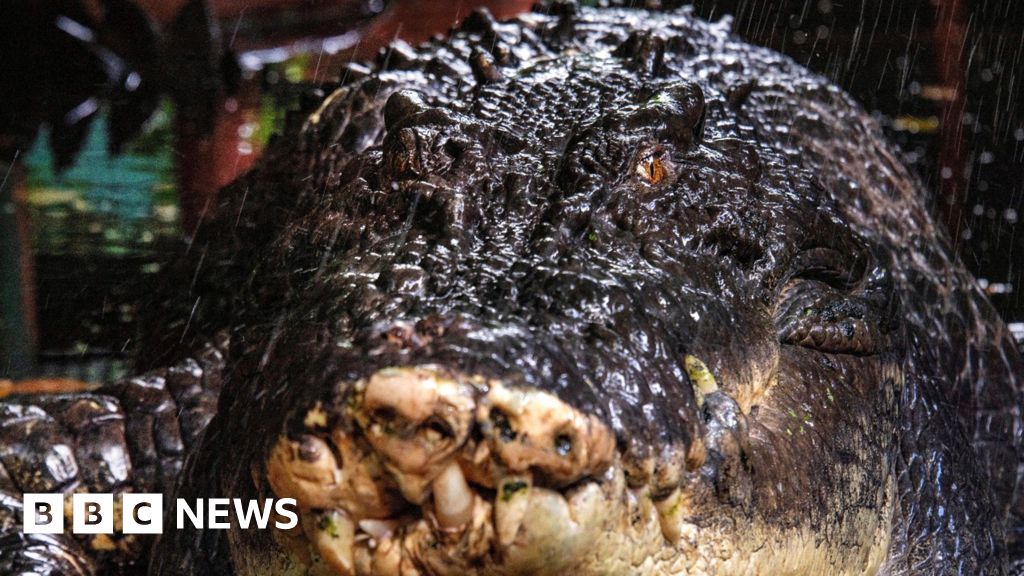ARTICLE AD BOX
 Image source, Getty Images
Image source, Getty Images
William J Burns said the failure of the Ukraine war risked undermining Vladimir Putin's leadership of Russia
By Gordon Corera
Security correspondent, BBC News
The Ukraine war is having a "corrosive" effect on Vladimir Putin's leadership of Russia, according to the head of the Central Intelligence Agency (CIA).
Russian disaffection over the war is providing new opportunities for the CIA to collect intelligence, the agency's Director William J Burns said.
America's top spy made the comments while delivering the annual lecture at the Ditchley Foundation in the UK.
He was speaking a week after the mutiny by Wagner boss Yevgeny Prigozhin.
Mr Burns said everyone had been "riveted" by the scenes last Saturday of Prigozhin's "armed challenge" to Moscow, when his Wagner mercenary forces marched towards Russia's capital.
Prigozhin's actions were "a vivid reminder of the corrosive effect of Putin's war on his own society and his own regime", he said.
The CIA director said the impact not just of Prigozhin's actions but also his statements - which included an indictment of both the rationale and execution of Russia's invasion - would play out for some time.
"Disaffection with the war will continue to gnaw away at the Russian leadership," Mr Burns said in his prepared remarks.
"That disaffection creates a once in a generation opportunity for us at CIA," referring to the role of the agency in recruiting human agents to provide intelligence.
"We are not letting it go to waste," he said to laughter from the audience. "We are very much open for business."
The CIA has recently launched a new social media campaign to try and reach people in Russia, including a video posted to the Telegram social media site, which is widely used by Russians. The campaign provided instructions on how to contact the CIA on the dark web without being monitored.
This video gained 2.5 million views in the first week.
Director Burns also reiterated the message other US officials have previously made in public that the US had no part in Prigozhin's mutiny.
He did not directly address recent reports in the Washington Post that he made a secret visit to the Ukrainian capital before the mutiny.
It was reported that discussions included the possibility that progress in Ukraine's counter-offensive might open the way for negotiations from a position of greater strength if substantial territory was taken.
Mr Burns - who previously served as the US Ambassador to Russia from 2005 to 2008 - said spending much of the last two decades trying to understand Russian President Putin had given him a "healthy dose of humility about pontificating about Putin and Russia".
But he added that one thing that he had learnt was that it was always a mistake to underestimate Mr Putin's fixation on controlling Ukraine.
The Russian leader believed that without Ukraine, Russia could not be a major power and Mr Putin himself could not be a great leader, he said.
"That tragic and brutish fixation has already brought shame to Russia and exposed its weaknesses," Mr Burns said.
"Putin's war has already been a strategic failure for Russia: its military weaknesses laid bare, its economy badly damaged for years to come, its future as a junior partner and economic colony of China being shaped by Putin's mistakes."
Turning to China, the CIA boss said it would be foolish for the US to attempt to decouple because of the deep economic interdependence between the two countries.
"China is the only country with both the intent to reshape the international order and increasingly the economic, diplomatic, military and technological power to do so," he said.
The US should instead "sensibly de-risk and diversify by securing resilient supply chains, protecting our technological edge and investing in industrial capacity", he added.

 1 year ago
98
1 year ago
98








 English (US)
English (US)